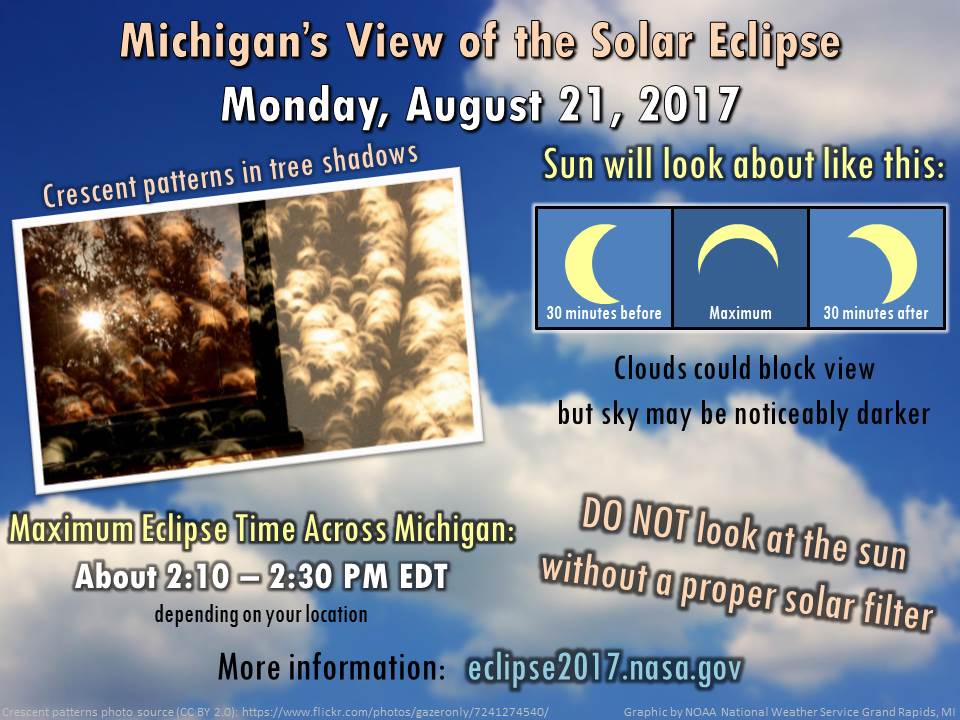
A solar eclipse happens when the moon passes between the sun and the earth, and blocks our view of all or part of the sun. This is a rarer event to observe compared to a lunar eclipse, which is when the earth's shadow falls on a full moon.
The cloud cover forecast for Michigan ranges from partly to mostly cloudy, with mainly high-altitude clouds. The sun will be partially eclipsed over Michigan during the afternoon, centered on the 2 o'clock hour. For Lower Michigan, the eclipse starts within a few minutes of 1 PM, is at its maximum between 2:19 and 2:27, and ends within a few minutes of 3:45 PM (exact times vary by location). Depending on where you are in the state, as much as 70 to 85% of the sun will be covered by the moon. Only a narrow path across the United States from Oregon to southern Illinois to South Carolina will witness a total eclipse. NASA will host eclipse live streams for those who want to view it remotely.
To prevent serious eye damage, you should only look directly at the sun through solar filters that are ISO 12312-2 compliant. Sunglasses are NOT safe for solar viewing. There have been reports of some fake and unsafe eclipse glasses being sold, so the American Astronomical Society has created a list of reputable vendors. Welder's glass shade 14 can also be used. You can use indirect methods of viewing the eclipse, such as a homemade pinhole projector. Crescent patterns in the shadows of trees will also be apparent if clouds don't block the sun. More information can be found at eclipse2017.nasa.gov/safety.
A small sliver of southeast Michigan will see a total eclipse on April 8, 2024, though the duration of totality will last longer in Ohio (a 75 to 99% partial eclipse will be seen from the rest of Michigan on this day). Southwest Michigan will see a total solar eclipse on September 14, 2099. There will be annular ("ring of fire") eclipses over northern Michigan in 2048 and 2057. For other opportunities to see a total eclipse this century, you're going to have to travel out of state.
We recommend checking out eclipse2017.nasa.gov.

 |
Media use of NWS Web News Stories is encouraged! |
 |